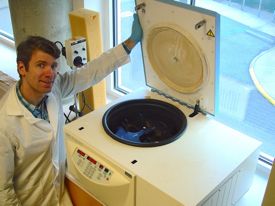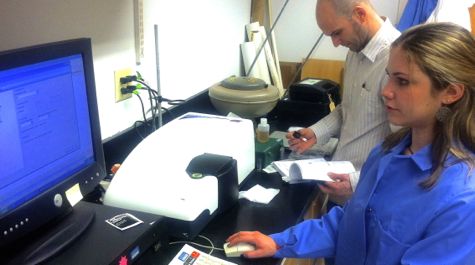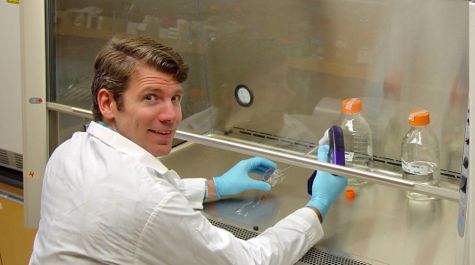Altria provides in-kind gift of scientific equipment to VIMS
Altria Group and its companies have provided the Virginia Institute of Marine Science with an in-kind gift of scientific equipment—valued at more than $100,000—that VIMS researchers will use to support studies and monitoring of water quality and ecosystem health in Chesapeake Bay and the coastal ocean.
The gift includes both high-tech instruments and everyday equipment ranging from a mass spectrometer and gas chromatographs to lab balances and biosafety cabinets.
Dr. Roger Mann, VIMS’ Director of Research and Advisory Services, says the equipment was quickly spoken for when made available to VIMS researchers, with requests from new faculty and teaching labs given highest preference.
“Almost every piece of equipment has found a home in a VIMS lab,” says Mann, “where it will be well used to conduct studies that help understand, protect, and restore Chesapeake Bay and the coastal ocean.”
The equipment will be used in projects that are as diverse as the interests and expertise of VIMS researchers, and as varied as the laboratory courses—from molecular genetics to isotope geochronology—offered to graduate students in the College of William and Mary’s School of Marine Science at VIMS.
Professor Deborah Bronk will use a rotary evaporator or “rotovap” donated by Altria to process samples in her ongoing studies of how nitrogen within effluents from local wastewater treatment plants breaks down or persists once released to the environment. Reduction of nitrogen inputs is one of the main goals of the pollution diet or “Total Maximum Daily Loads,” now being developed and applied in the Chesapeake Bay watershed to improve Bay health.
Assistant Professor Aaron Beck and graduate student Alison O’Connor will use a donated “zetasizer” to study how the mixing of salty and fresh groundwater affects the size and surface charge of colloidal particles. This knowledge will help better understand and predict the role that groundwater plays in the movement of nutrients and contaminants into and out of Chesapeake Bay. Nutrient-fueled growth of algae and other phytoplankton is one of the Bay’s most pressing issues, giving rise to harmful algal blooms, low-oxygen “dead zones,” and other water-quality issues.
 Newly arrived professors Andrew Wargo and B.K. Song plan to use
their equipment to support the start-up of their research programs at VIMS. Wargo
arrived at VIMS in October from a joint post-doctoral fellowship at the University
of Washington and the Western Fisheries Research Center. He received his Ph.D.
in Biological Sciences from the University of Edinburgh in Scotland. Song
arrived at VIMS this month from the University of North Carolina at
Wilmington. He received his Ph.D. in Environmental
Science from Rutgers University.
Newly arrived professors Andrew Wargo and B.K. Song plan to use
their equipment to support the start-up of their research programs at VIMS. Wargo
arrived at VIMS in October from a joint post-doctoral fellowship at the University
of Washington and the Western Fisheries Research Center. He received his Ph.D.
in Biological Sciences from the University of Edinburgh in Scotland. Song
arrived at VIMS this month from the University of North Carolina at
Wilmington. He received his Ph.D. in Environmental
Science from Rutgers University.
Wargo, a microbiologist, will use the instruments donated by Altria—including a 37° incubator, a centrifuge, and a tissue-culture hood—to support his research into the ecology and evolution of infectious diseases among fishes of the salmon family, with a focus on rainbow trout. His work has implications for managing viral diseases both within fish farms and in hatchery stocking programs.
Song will use Altria’s donated equipment to advance his studies of the role that oysters play in the cycling of nitrogen within shallow-water habitats. Song arrives at VIMS with a grant from the National Science Foundation to investigate how nitrogen cycling by oysters and oyster reefs impacts the net health of coastal ecosystems. Oyster reefs are known to remove excess nitrogen from the waters they inhabit, but that benefit may be tempered by their production of nitrous oxide, a potent greenhouse gas.
VIMS Dean and Director John Wells says “Altria’s in-kind gifts are greatly appreciated both by VIMS as a whole and by our individual researchers and students. Their generous support helps us continue our mission of research, education, and advisory service to the Commonwealth and nation.”


